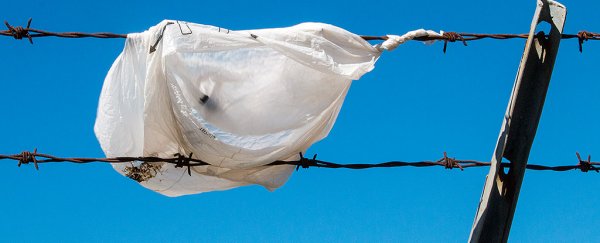Rejecting a plea from manufacturers that the production of plastic bags creates jobs, Kenya's high court on Monday paved the way for the world's strongest ban on plastic bags to come into full effect.
The law, representing Kenya's third attempt at a ban in the past decade, comes with harsh penalties.
For now, they are aimed mostly at manufacturers and suppliers, but police are allowed to go after people who are simply carrying them.
The highest penalties could include four years in prison and up to $40,000 in fines.
Kenya joins a growing number of African countries that have implemented full or partial bans on plastic bags, including Cameroon, Guinea-Bissau, Mali, Tanzania, Uganda, Ethiopia, Mauritania and Malawi.
About 40 nations worldwide have a similar law but with far less severe penalties.
Other parts of the world have more commonly erred on the side of taxing single-use plastic bags as a way of reducing their use.
The United Nations Environmental Program says that 100 million plastic bags are handed out each year in Kenya, and streets in urban areas of the country are often lined with copious litter.
The bags can take hundreds, if not thousands, of years to decompose and can kill a wide array of marine life if dumped near rivers and coasts.
Street animals also can die after ingesting them. The bags can also clog drains and sewers and contribute to flooding and the spread of disease.
The Kenyan government took pains to assure the public that the "common man" would not suffer from the ruling.
As elsewhere, most small vendors provide plastic bags as a convenient way for customers to take goods home.
"Ordinary wananchi will not be harmed," Environment Minister Judi Wakhungu told Reuters, using a Kiswahili term for "common man."
2017 © The Washington Post
This article was originally published by The Washington Post.
